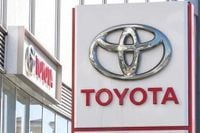On April 26, 2025, multiple media outlets reported that Toyota Auto Loom, a foundational company of the Toyota Group, is contemplating making its stock private. This decision is spearheaded by the Toyota family, including Toyota Chairman Akio Toyoda, who have proposed a buyout that hinges on privatization. In response to this proposal, Toyota Auto Loom has established a special committee to evaluate the situation. The Toyota Motor Corporation is also in the process of creating a special purpose company (SPC) to facilitate a tender offer (TOB) for the company's shares.
This move is not merely a corporate decision; it raises fundamental questions for the entire Toyota Group. As globalization advances and shareholder supremacy becomes increasingly dominant, the necessity of preserving the company's origins is under scrutiny. What value or future vision does the Toyota family see in maintaining this connection to the past?
The Toyota family's intent to safeguard Toyota Auto Loom is not just a defensive tactic but a reflection of their larger ambitions for the Toyota Group. The article delves into the motivations behind this protective stance and interprets the potential future direction of the group.
In a related development, it was revealed on May 7, 2025, that the Toyota founders have chosen Nomura Securities as their financial advisor for the tender offer, which may commence in November 2025. This information comes from several sources familiar with the matter, who spoke on the condition of anonymity. Meanwhile, SMBC Nikko Securities has been appointed as the financial advisor for Toyota Auto Loom, while Mitsubishi UFJ Morgan Stanley Securities is advising the special committee established to review the buyout proposal.
The SPC's goal is to acquire all shares through the tender offer, with plans to initiate this process following discussions with existing shareholders. The buyout could potentially reach 6 trillion yen, making it the largest privatization deal in Japan's history. This ambitious endeavor has sparked a competitive atmosphere among major investment banks in Japan, all vying to facilitate this monumental transaction.
Currently, Toyota holds 9.07% of Toyota Auto Loom's shares, while Toyota Real Estate, chaired by Akio Toyoda, owns an additional 5.32%. As reported in Toyota Auto Loom's semi-annual report, the company's market capitalization was approximately 5.5 trillion yen as of the closing price on May 7, 2025. However, there is growing market pressure to dissolve cross-shareholdings, particularly in light of capital efficiency and corporate governance concerns.
On May 8, 2025, President Koji Sato is scheduled to attend an earnings briefing for Toyota, where he is expected to address the privatization plan. Analysts are keenly observing this development, as it could significantly impact the future of the company and its relationship with shareholders.
Julie Boote, an analyst from Pelham Smithers Associates, commented on the situation, stating, "What investors really wanted to see was the dissolution of the cross-shareholding relationship between Toyota and Toyota Auto Loom." She pointed out that while options such as reducing Toyota's stake in Toyota Auto Loom or fully acquiring the company could have been viable, the reported buyout and privatization framework raises questions about the future management of these cross-held shares.
The stock price of Toyota Auto Loom saw a significant increase, rising 4.6% to 17,600 yen during morning trading on May 8, 2025. This marked a new intraday high, the highest since September 11, 1974, reflecting investor optimism following the news of the buyout proposal.
As the Toyota Group navigates this pivotal moment, the implications of privatizing Toyota Auto Loom extend beyond financial metrics; they touch on the very identity and legacy of the company. The founders' commitment to preserving the essence of their origins amid a rapidly changing global landscape poses a critical question: how can a heritage company adapt to modern demands while remaining true to its roots?
The potential privatization of Toyota Auto Loom is a reflection of broader trends in corporate governance and shareholder relations, particularly in Japan, where cross-shareholdings have historically been a hallmark of corporate structure. The outcome of this situation could set a precedent for how other companies approach similar dilemmas in the future.
In conclusion, the unfolding narrative around Toyota Auto Loom's potential privatization encapsulates a significant crossroads for the Toyota Group. As they grapple with the challenges of globalization and the pressures of the financial market, the family's resolve to protect their legacy may very well shape the future of one of Japan's most iconic automotive brands.





